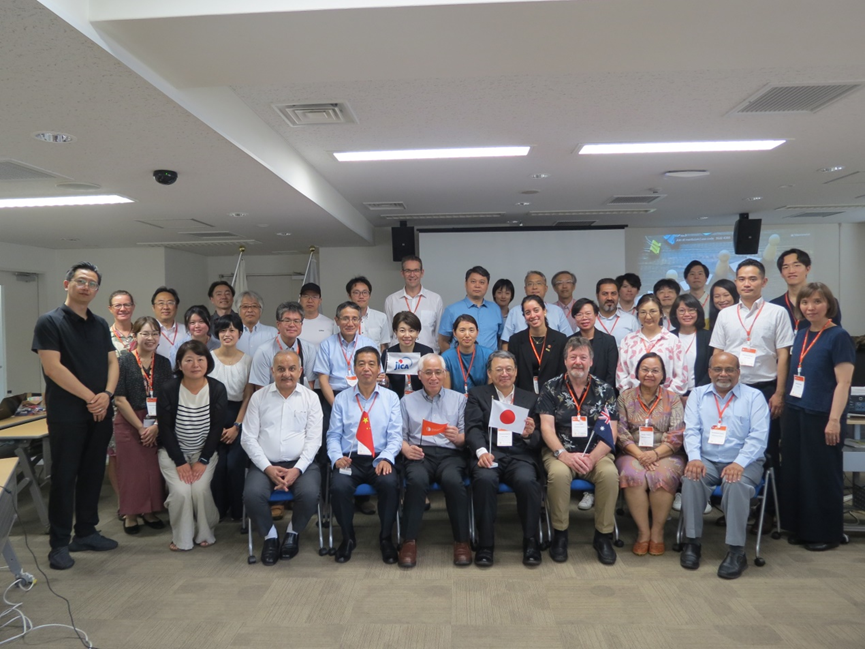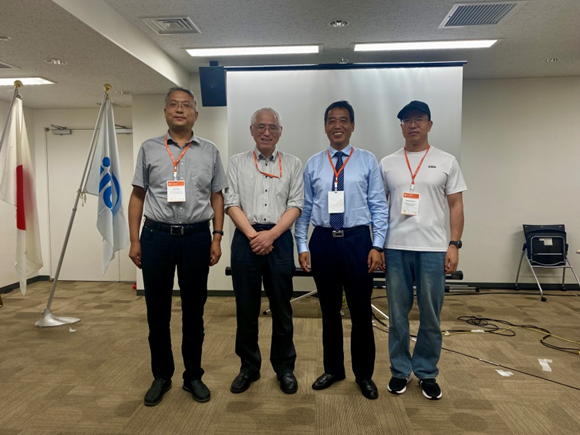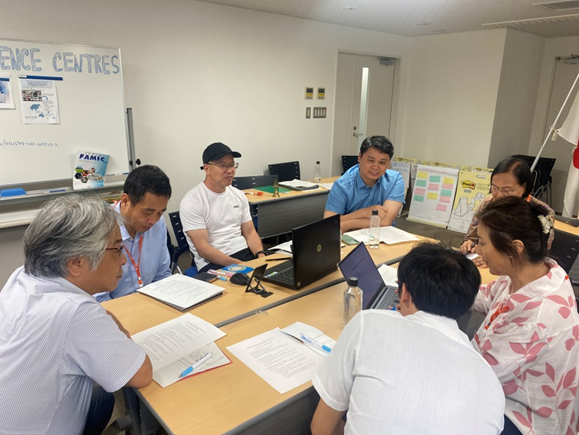
The 4th Regional Meeting for WOAH Reference Centres for Asia and the Pacific, organized by WOAH RRAP and the government of Japan, Ministry of Agriculture, Forestry and Fisheries (MAFF), was hold in Tokyo, from 17th to 19th July 2024. The meeting was attended by over 40 participants from the WOAH Reference Labs (RLs) and WOAH Collaborating Centres (CCs). Three experts from LVRI CAAS, including Dr. Yin Hong, Luo Xuenong and He Jijun also attended this meeting. Dr. Yin Hong gave a keynote presentation on the performance of duties of the WOAH Ovine Theileriosis Reference Laboratory. The main objectives of the meeting were to provide an opportunity for RL experts and Contact Person of CCs in the region to exchange ideas, to identify challenges and share experiences. Meanwhile, it is aimed to advocate the latest information and requirements of WOAH and strengthen the implementation of key activities. On 18th July, the meeting focused on the construction of RC Network System, sample and information sharing, capacity building, the Evaluation of Performance of Veterinary Services (PVS), as well as the Twinning Programmes. On 19th July, the 8 newly recognized RLs in Asia and the Pacific since 2021 briefly reported their work progress. Dr. Maroanan Delgado from WOAH headquarters explained the RC functions, applications, expert selection and replacement, annual report submission and assessment requirements. The global network of WOAH Reference Centre (RCs), consisting of WOAH Reference Laboratories (RLs) and WOAH Collaboration Centers (CCs), is the central core of the WOAH scientific excellence. According to the meeting, there are currently 61 RLs and 13 CCS in the Asia and the Pacific region. Of note, our institute is home to 3 WOAH RLs. By attending the meeting, on the one hand, we have learned about the new requirements of WOAH RCs, which is helpful to the routine operation of 3 RLs in our institute. On the other hand, we have strengthened the communication between laboratories in the region, which would definitely lay a foundation for broadening and deepening international cooperation and exchanges.

